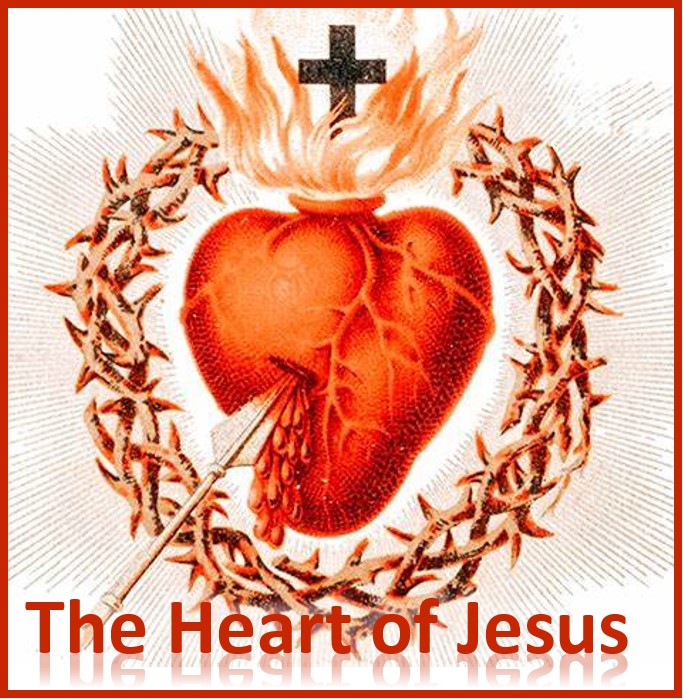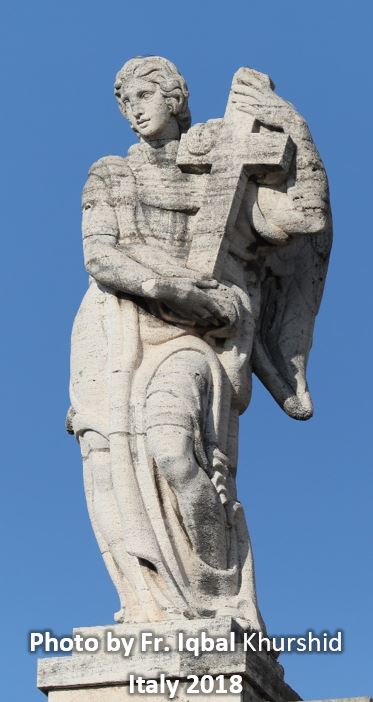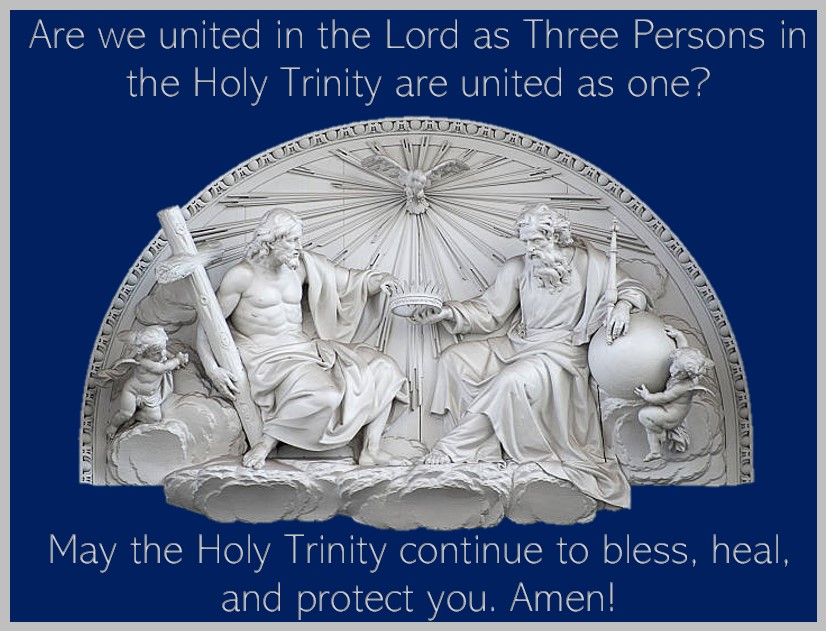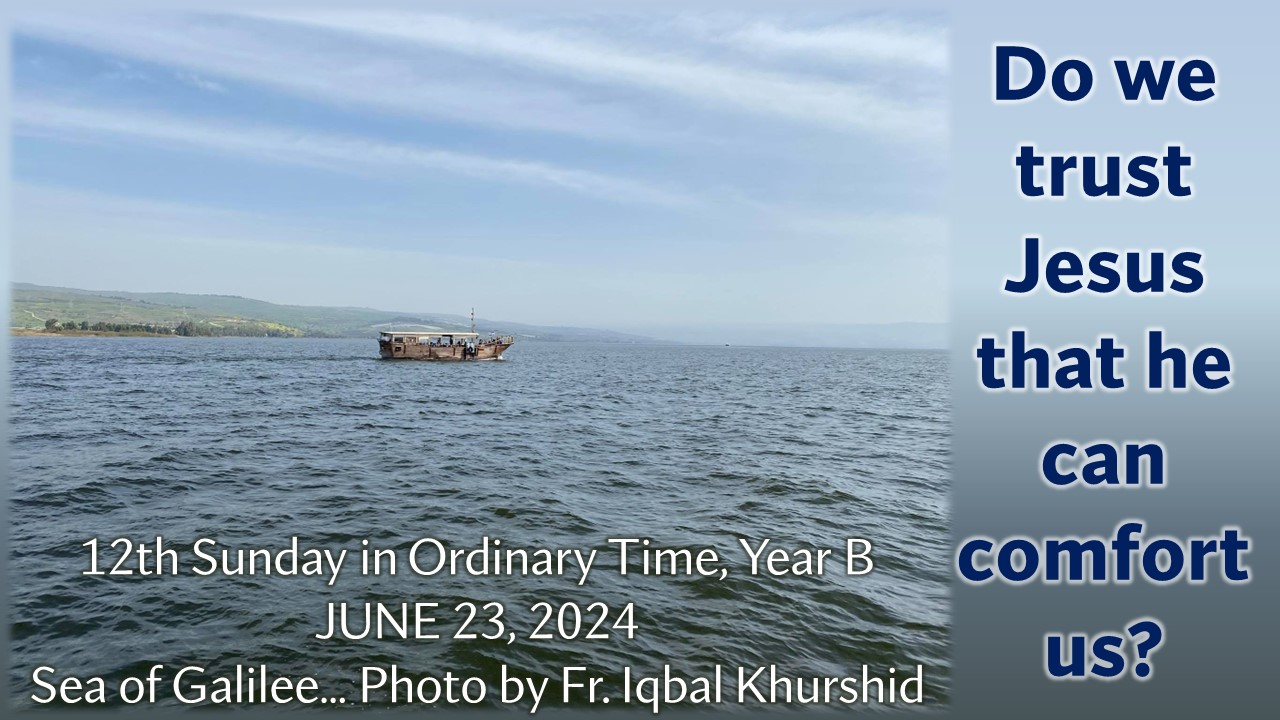
4th Sunday in Ordinary Time Year A ~ January 29, 2023
THE HEART OF JESUS
The Last Sunday’s Readings helped us to reflect that Jesus is the light of the world who dispels the darkness and fear of death, and shines his face on us so that we may see in his divinity who shared our humanity to be one with us as he is one with the Father. We also saw that how four brothers who were just ordinary fishermen were called to be fishers of men and they left everything and followed him. Today we see the Heart of Jesus through the beatitudes where he opens his heart to call everyone “blessed”. However sometimes we close our hearts to see the heart of Jesus in the beatitudes. We can raise a question: “Why are there people who have their heart closed to salvation? Fear is the answer to the question because salvation scares us. We need salvation, but at the same time we are afraid of it. When the Lord comes to save us, we must give everything, and at that point he commands; and we fear this. People want to be in control, they want to be their own masters. And so, salvation does not come, the consolation of the Spirit does not reach us.
Furthermore, the Beatitudes are “the law of those who have been saved” and have opened their heart to salvation. “It was the People of God that followed John the Baptist first and then the Lord”, precisely because they were in need of salvation. But there were also those who “went to test this new doctrine and then to quarrel with Jesus”. Unfortunately, they had closed hearts and that we have seen in the lives of Pharisees and people in higher authority. The self-righteousness did block their hearts, not to see Jesus’ heart who is full of mercy and compassion which goes out and seeks the lost sheep. We can ask the Lord for “the grace to follow him”, but not with the liberty of the Pharisees and Sadducees who became hypocrites because they wanted “to follow him only with human freedom”. Hypocrisy is exactly that: “Not allowing the Spirit to change our hearts with his salvation. The freedom that the Spirit gives us is also a sort of slavery, a slavery to the Lord that sets us free. It is another kind of liberty”.
God does give us a chance to come back to him just as a crane was given chance to save his life. A wolf had been feasting greedily, and a bone had stuck crosswise in his throat. He could get it neither up nor down, and of course, he could not eat a thing. Naturally, that was an awful state of affairs for a greedy wolf. So away he hurried to the crane. He was sure that she, with her long neck and bill, would easily be able to reach the bone and pull it out. “I will reward you very handsomely”, said the wolf, “if you pull that bone out of me”.
The crane, as we can imagine, was very uneasy about putting her head in wolf’s throat. But she was grasping in nature, so she did what wolf asked her to do. When the wolf felt that the bone was gone, he started to walk away. “But what about my reward?” called the crane anxiously. “What” snarled the wolf, whirling around. “Haven’t you got it” isn’t it enough that I let you take your head out of my mouth without snapping it off?”
People often run the risk of trying to “bargain”, to take what is convenient for us, “a little of this, a little of that”. It’s like “making a fruit salad: a little of the Spirit and a little of the spirit of the world”. However, with God there is no halfway house: the person chooses either “one thing or the other”. The Lord is clear: no one can serve two masters. One either serves the Lord or the spirit of the world. It is impossible to mix everything together. In the Gospel we listened to Jesus who was teaching his disciples and the crowd that had gathered on the mountain near the lake of Galilee. The Word of the risen and living Lord also shows us, today, the way to reach the true beatitude, the way that leads to Heaven. It is difficult to understand the path because it goes against the current, but the Lord tells us that those who go on this path are happy, sooner or later they become happy.
Let us listen to Saint Ignatius of Antioch, bishop and martyr who opened his heart to receive Jesus’ heart to lay his life for his master who laid his life for him on the Cross: “From Ignatius, known as Theophorus, to the Church of God the Father and of Jesus Christ, his beloved, at Smyrna in Asia, wishing you all joy in an immaculate spirit and the Word of God. By his mercy you have won every gift and lacked none, filled as you are with faith and love, beloved of God and fruitful in sanctity. I celebrate the glory of Jesus Christ as God because he is responsible for your wisdom, aware as I am of the perfection of your unshakeable faith. You are like men who have been nailed body and soul to the cross of Jesus Christ, confirmed in love by his blood. In regard to the Lord, you firmly believe that he was of the race of David according to the flesh, but God’s son by the will and power of God; truly born of the Virgin and baptized by John, that all justice might be fulfilled; truly nailed to a cross in the flesh for our sake under Pontius Pilate and the Tetrarch Herod, and of his most blessed passion we are the fruit. And thus, by his resurrection he raised up a standard over his saints and faithful ones for all time (both Jews and Gentiles alike) in the one body of his Church. For he endured all this for us, for our salvation; and he really suffered, and just as truly rose from the dead. As for myself, I am convinced that he was united with his body even after the resurrection. When he visited Peter and his companions, he said to them: Take hold of me, touch me, and see that I am not a spirit without a body. Immediately they touched him and believed, clutching at his body and his very spirit. And for this reason, they despised death and conquered it. In addition, after his resurrection, the Lord ate and drank with them like a real human being, even though in spirit he was united with his Father. And so, I am giving you serious instruction on these things, dearly beloved, even though I am aware that you believe them to be so”.
Blessed: this is the word with which Jesus begins his preaching in Matthew’s Gospel. And it is the refrain he repeats today, as if to fix in our hearts, more than anything, an essential message: if you are with Jesus, if you love to listen to his word as the disciples of that time did, if you try to live out this word every day, then you are blessed. Not you will be blessed, but you are blessed; this is the first truth we know about the Christian life. It is not simply a list of external prescriptions to fulfil or a set of teachings to know. The Christian life, first and foremost, is not this; rather, it is the knowledge that, in Jesus, we are the Father’s beloved children. The Christian life means living out the joy of this blessedness, wanting to live life as a love story, the story of God’s faithful love, he who never abandons us and wishes to be in communion with us always. This is the reason for our joy, a joy that no one in the world and no circumstance in our lives can take from us. It is a joy that gives peace also in the midst of pain, a joy that already makes us participate in that eternal happiness which awaits us. Dear brothers and sisters, in the joy of meeting you, this is the word I have come to say to you: blessed!
Even as Jesus calls his own disciples blessed, we are yet struck by the reasons for the individual Beatitudes. We see in them an overturning of that popular thinking, according to which it is the rich and the powerful who are blessed, those who are successful and acclaimed by the crowds. For Jesus, on the other hand, blessed are the poor, the meek, those who remain just even at the cost of appearing in a bad light, those who are persecuted. Who is correct here: Jesus or the world? To understand this, let us look at how Jesus lived: poor in respect to things, but wealthy in love; he healed so many lives, but did not spare his own. He came to serve and not to be served; he taught us that greatness is not found in having but rather in giving. Just and meek, he did not offer resistance, but allowed himself to be condemned unjustly. In this way Jesus brought God’s love into the world. Only in this way did he defeat death, sin, fear and even worldliness: only by the power of divine love. Let us together ask here today for the grace of rediscovering the attraction of following Jesus, of imitating him, of not seeking anyone else but him and his humble love. For here is the meaning of our life: in communion with him and in our love for others. Do you believe in this?
To live the life of the blessed and following the way of Jesus does not, however, mean always being cheerful. Someone who is afflicted, who suffers injustice, who does everything he can to be a peacemaker, knows what it means to suffer. It is most certainly not easy for you to live far from home, missing the affection of your loved ones, and perhaps also feeling uncertainty about the future. But the Lord is faithful and does not abandon his people. A story from the life of Saint Anthony the Abbot, the great founder of monasticism in the desert, may be helpful to us. He left everything for the Lord and found himself in the desert. There, for a time, he was immersed in a bitter spiritual struggle that gave him no peace; he was assaulted by doubts and darkness, and even by temptation to give in to nostalgia and regrets about his earlier life. But then, after all this torment the Lord consoled him, and Saint Anthony asked him: “Where were you? Why did you not appear before, to free me from my suffering? Where were you?” But then he clearly heard Jesus’ answer: “I was here, Anthony”. The Lord is close. It can happen that, when faced with fresh sorrow or a difficult period, we think we are alone, even after all the time we have spent with the Lord. But in those moments, where he might not intervene immediately, he walks at our side. And if we continue to go forward, he will open a new way for us; for the Lord specializes in doing new things; he can even open paths in the desert (Is 43:19).
I want to tell you that living out the Beatitudes does not require dramatic gestures. Look at Jesus: he left nothing written, built nothing imposing. And when he told us how to live, he did not ask us to build great works or draw attention to ourselves with extraordinary gestures. He asked us to produce just one work of art, possible for everyone: our own life. The Beatitudes are thus a roadmap for our life: they do not require superhuman actions, but rather the imitation of Jesus in our everyday life. They invite us to keep our hearts pure, to practice meekness and justice despite everything, to be merciful to all, to live affliction in union with God. This is the holiness of daily life, one that has no need for miracles or extraordinary signs. The Beatitudes are not for supermen, but for those who face up to the challenges and trials of each day. Those who live out the Beatitudes according to Jesus can cleanse the world. They are like a tree that even in the wasteland absorbs polluted air each day and gives back oxygen. It is my hope that you will be like this, rooted in Christ, in Jesus and ready to do good to those around you. May your communities be oases of peace.
This is the way of holiness, and it is very much the way of happiness. It is the way that Jesus travelled. Indeed, He himself is the Way: those who walk with Him and proceed through Him enter eternal life. Let us ask the Lord for the grace to be simple and humble people, the grace to be able to weep, the grace to be meek, the grace to work for justice and peace, and above all the grace to let ourselves be forgiven by God to become instruments of his mercy. Let us trust in the merciful heart of Jesus to have eternal life because his love and mercy never departs from his saints.
Other Sermons In This Series

6th Sunday in Ordinary Time Year C – February 13, 2022
February 11, 2022

Solemnity of Holy Trinity Year A ~ June 4, 2023
June 02, 2023

12th Sunday in Ordinary Time, Year B ~ June 23, 2024
June 20, 2024

